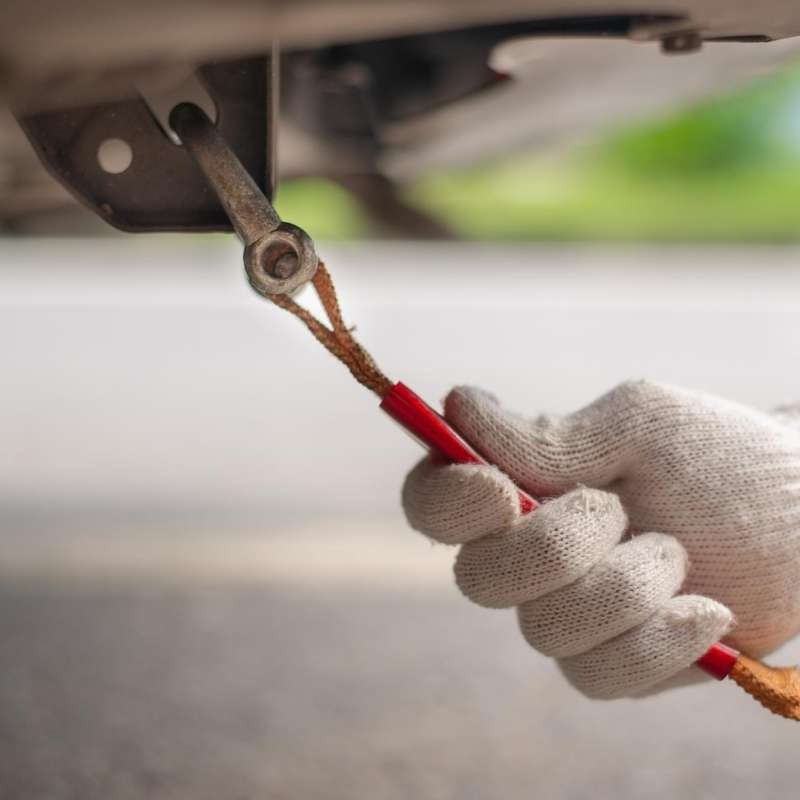You've probably seen billboards or received direct mail postcards that urge you to donate the old clunker sitting in your driveway to a charity. The ads are appealing, especially when they claim they'll take a car that's not running or needs lots of repairs. You'll even get a tax benefit to boot!
Of course it's always a good thing to make a donation to a charity you believe in. But before you sign your title away, here are five things you should consider.
1. Do you typically take a standard deduction on your taxes?
If so, keep in mind you can only realize a tax benefit for your donation if you itemize your deductions, which you do when your allowable deductions exceed your standard deduction. Right now the standard deduction for individuals is $12,000 and the married deduction is $24,000. Deductions that taxpayers typically itemize, besides charitable donations, include amounts paid for state and local income taxes, sales taxes, real estate and personal property taxes, mortgage interest, disaster losses from a federally declared disaster, and uninsured medical and dental expenses.
2. What shape is the car in?
The charity may actually use the car itself if it's in good condition, which would result in a bigger tax benefit for yourself as opposed if they sell it to raise money. If the car needs work or has a salvage title, you'd have to disclose these issues to a potential buyer, but most charities don't care what shape a car is in. They'll sell it and happily take whatever they can get for the vehicle.
3. Could you use the money?
Yes, you could realize a tax benefit, but if you need cash now, you may be better off selling your car or trading it in if you're buying a new vehicle. Often any tax benefit you get through donating is much less than what you'd get if you sold the car. For example, if the charity sells the car and it sells for less than $500, you'd only be able to deduct $500 or the fair market value of the car, whichever is less, on your tax return. On the other hand, even if a car is basically undrivable, you may be able to sell it to a junkyard and walk away with several hundred dollars in your pocket.
4. Do you have time to sell a car?
Selling a car on your own can be a headache. You've got to clean it out, write up ads, list those ads for potential buyers, then deal with the tire-kickers, scammers, and no-shows. Especially when you have a car that isn't worth that much and you simply want to get rid of it, it's very appealing to call a charity that will take the car away for you with very little effort on your part.
5. Is there someone close to you who could use a "new" car?
There's the old maxim, "Charity begins at home." A new driver in the family or a neighbor in need might be grateful to have your car, either for free or for a small fee. If you're not looking to make some money on the vehicle and you don't have a charity in mind, giving your car to someone close to you could solve not just your problem, but theirs, too.
When my mother passed away, I inherited her car and for a year, I let it sit in our driveway because I was emotionally not ready to sell it. I asked several family members if they wanted it, but I had no takers. When a friend of a friend recently needed a car, I quickly offered my mother's up. Unfortunately by this time, the car needed some expensive repairs from sitting so long, so I made the decision to donate it to my favorite charity. Sure, I could have gotten a couple hundred dollars by having our local junkyard tow it away, but my well-regarded charity has a formal car donation program that made things so easy, all I had to do was fill out a form on the web, sign the back of car's title, and clean out the vehicle. The charity did the rest.
Before you donate a car to a charity, do some research on them through Charity Navigator. Unfortunately there are organizations around the country that are being investigated for false advertising and fraud, or that use the money raised for purposes other than the intended use. You want to make sure your donation actually goes to where you want it to go.*
Ready to replace your old car with new wheels? Or looking for a lower rate on a car loan you already have? Learn how Hanscom FCU can help you save money.
* The content is developed from sources believed to be providing accurate information. The information in this material is not intended as tax or legal advice. Please consult legal or tax professionals for specific information regarding your individual situation.
Others are reading:














Comment